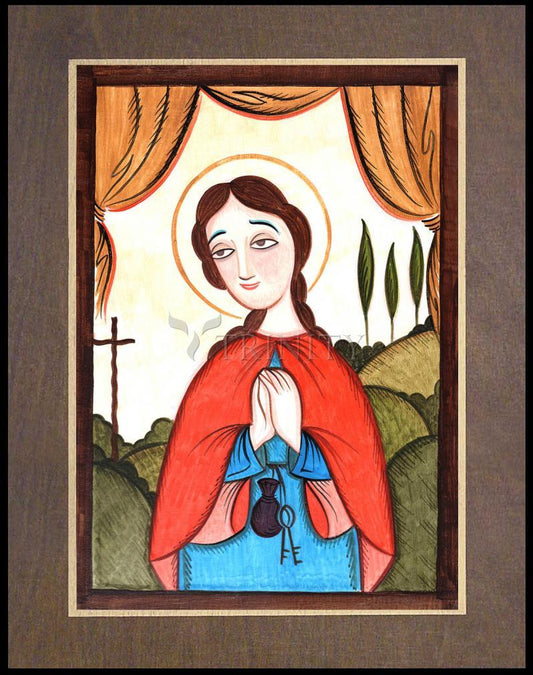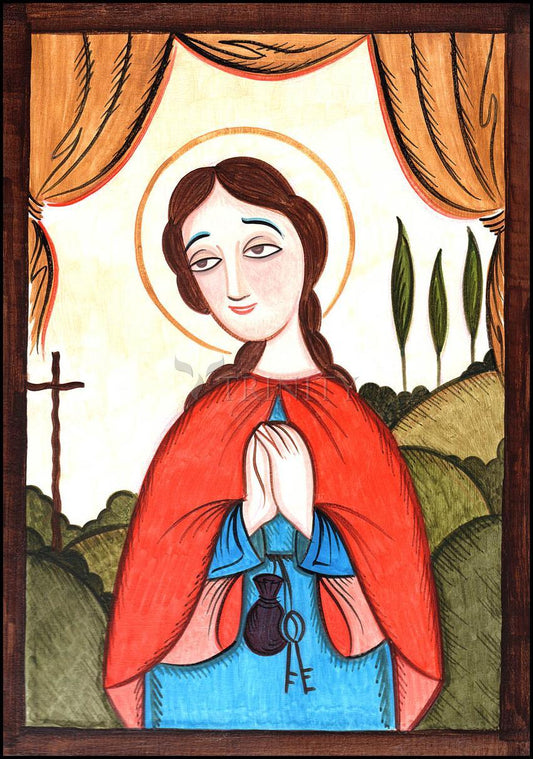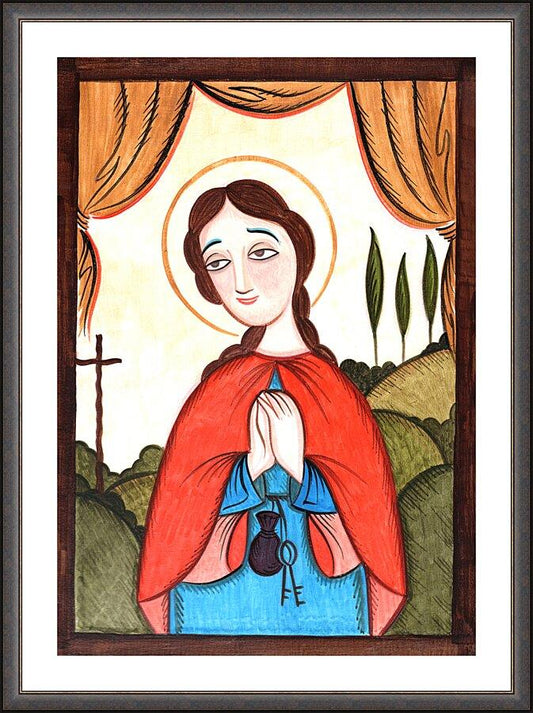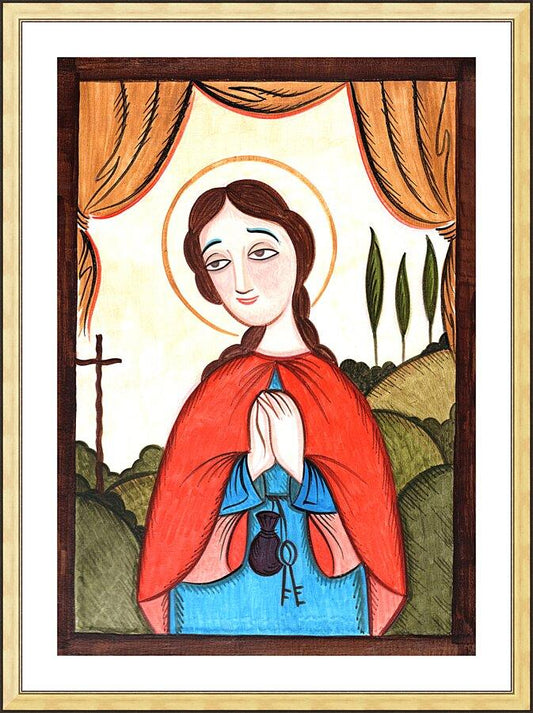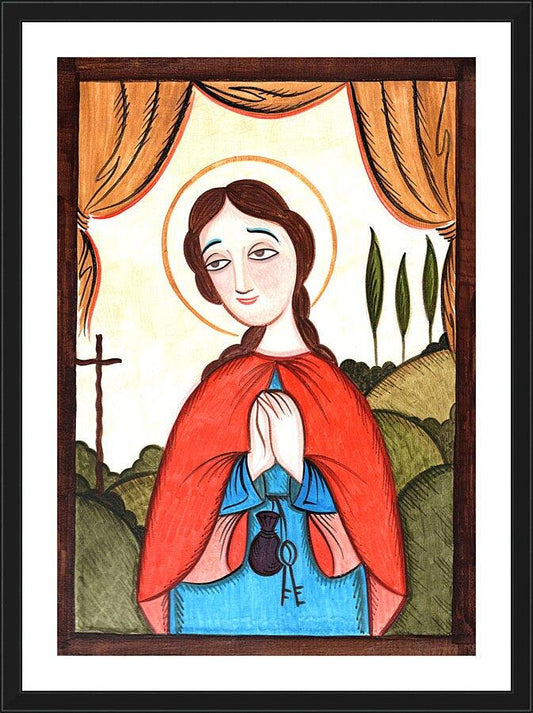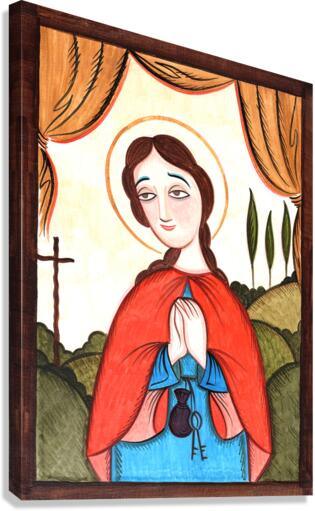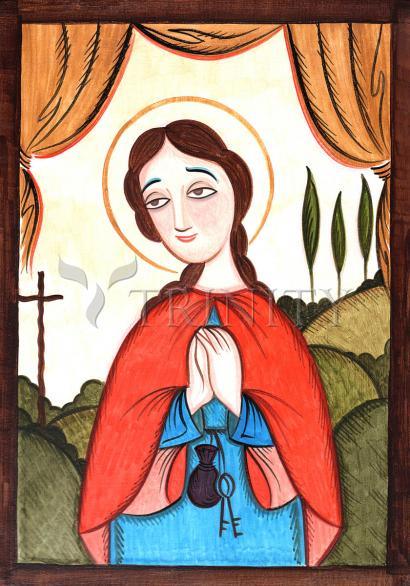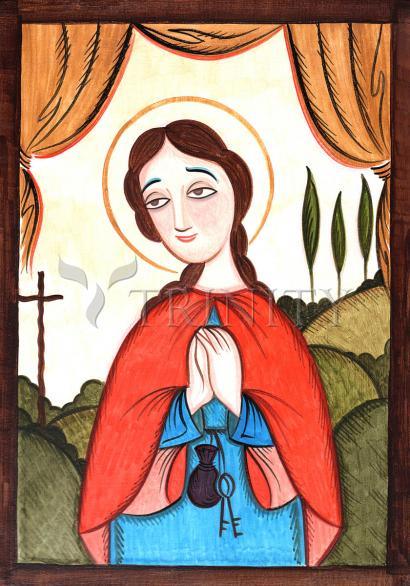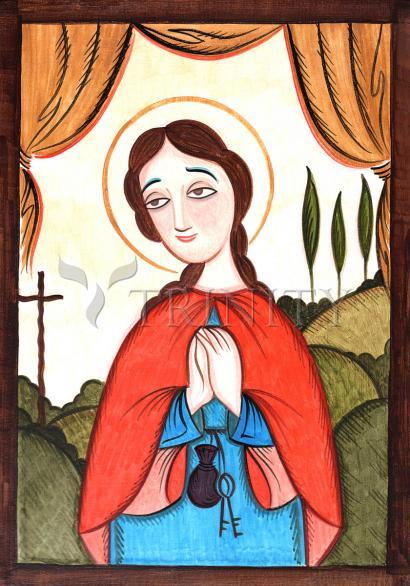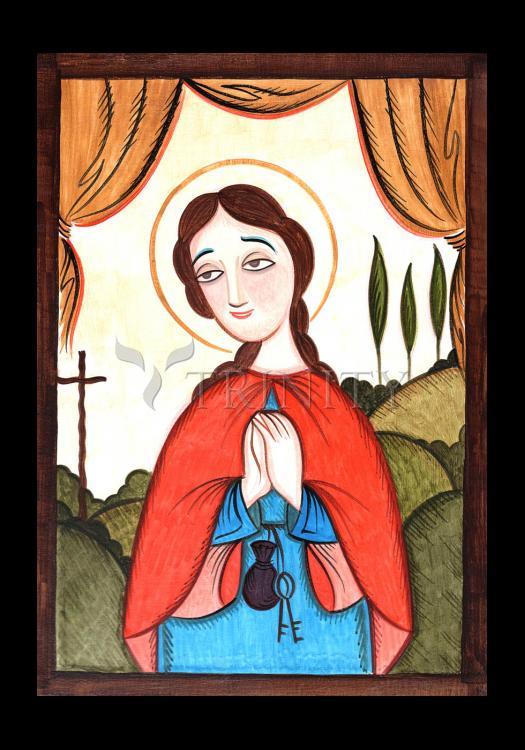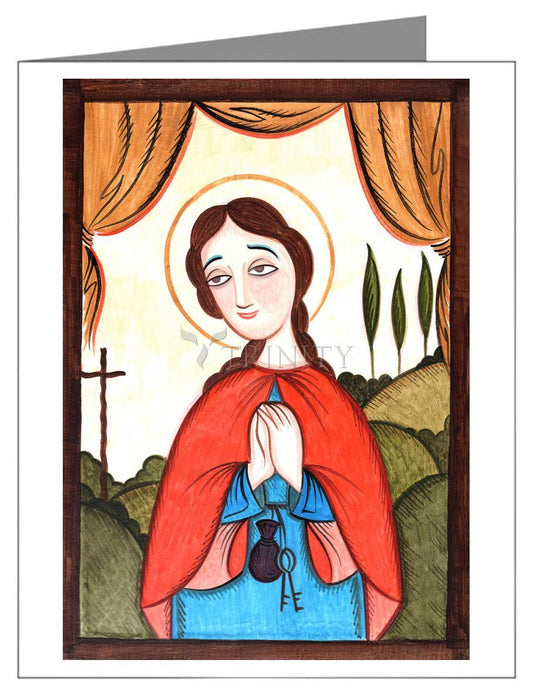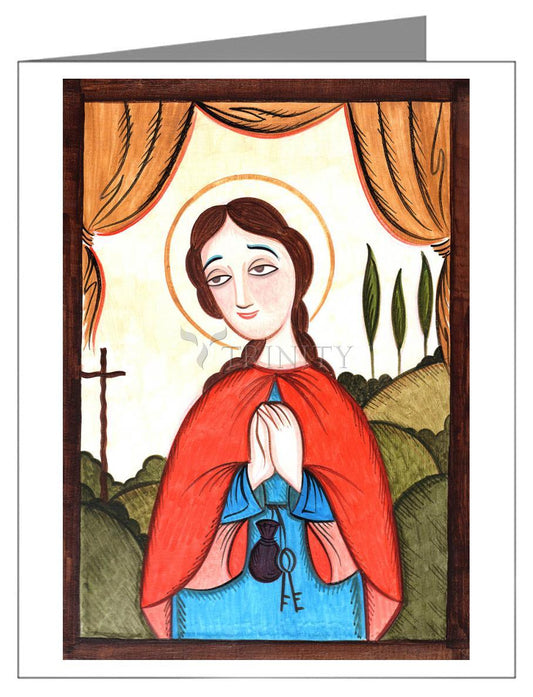Saint Zita of Lucca was a member of the Third Order of St. Francis. Lucca is in Tuscany; and since the Third Order was widely propagated there after its founding, this holy servant girl of the thirteenth century would quite naturally join its ranks.
Zita was born at the village of Monte Sagrati in 1218, at the time that S.t Francis was entering upon his career as a knight-errant of Christ. Her parents were poor, devout Christians. Her older sister afterwards become a nun and her uncle Graziano was a saintly hermit.
When she was twelve years old, Zita went to Lucca, eight miles from her home, to be a servant girl of the Fatinelli family which carried on a prosperous wool and silk weaving business. She remained in their employ until she died forty-eight years later.
Her daily work became a part of her religious life. She was wont to say:
"A servant girl is not pious, if she is not industrious; work shy piety is sham piety."
At the same time she led a very prayerful and penitential life. She rose nightly for prayer; and daily she attended the first Mass in the adjacent church of San Frediano. The good food she received for herself, she gave to the poor, and lived on waste scraps or fasted. She wore only the poorest clothes and never put on shoes, even in winter.
For some years she had much to bear from her fellow servants, who despised her way of life and insulted her repeatedly. Though she performed her work faithfully, her employers too were prejudiced against her for a time and treated her as a common drudge. But in the spirit of the suffering Christ, she bore these trials without complaint and never lost her temper or peace of mind.
During the time of a local famine St. Zita gave away beans to the poor and hungry from her master's supply of provisions. Not aware of what she was doing, the master decided one day that the time had come to sell the beans for a great profit. Fearful of her master's anger, St Zita prayed to God for help. Then the master checked, finding that the supply of beans had not diminished. It could only have been a miracle of multiplication.
By her patience she gradually overcame all opposition, and became the friend and advisor of the whole household, including the servants. Her master and mistress, realizing at last what a treasure they possessed in Zita, made her chief house-keeper and the children's nurse. This embarrassed her even more than the slights she had to bear during the earlier years. However, she fulfilled her duties so well that everyone fared so much better as a result.
Once St. Zita stayed longer than she intended to at church. It was baking day, and as she traveled home she realized she was very far behind in her work. When she entered the kitchen to begin working, however, she found the bread placed in neat rows, ready to be baked. All she had to do was place it in the ovens.
When Lucca lay under an interdict from 1231 to 1234, Zita used to go on foot into Pisan territory to receive Holy Communion. These were dangerous trips at the time but mysterious strangers befriended Zita on the way, and she was never molested. During the later years of her life, when she was relieved of much of the domestic work, she visited and helped the poor, the sick, and the prisoners to her heart's content.
Absorbed in prayer, her eyes turned heavenward, and her hands crossed on her breast, she died on April 27, 1278, at the age of sixty. At the time, a brilliant star shone above her attic room.
After she had been honored as a saint for four centuries, Pope Innocent XII formally approved this cult in 1696. She is the patroness of domestic workers.
"Excerpts from "The Franciscan Book of Saints," edited by Marion Habig, OFM



